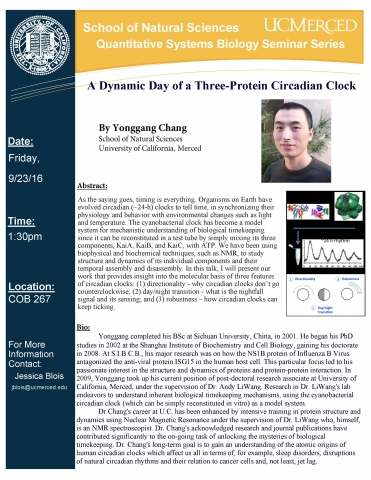Yonggang Chang, University of California, Merced
Abstract:
As the saying goes, timing is everything. Organisms on Earth have evolved circadian (~24-h) clocks to tell time, in synchronizing their physiology and behavior with environmental changes such as light and temperature. The cyanobacterial clock has become a model system for mechanistic understanding of biological timekeeping since it can be reconstituted in a test tube by simply mixing its three components, KaiA, KaiB, and KaiC, with ATP. We have been using biophysical and biochemical techniques, such as NMR, to study structure and dynamics of its individual components and their temporal assembly and disassembly. In this talk, I will present our work that provides insight into the molecular basis of three features of circadian clocks: (1) directionality - why circadian clocks don’t go counterclockwise; (2) day/night transition - what is the nightfall signal and its sensing; and (3) robustness – how circadian clocks can keep ticking.




